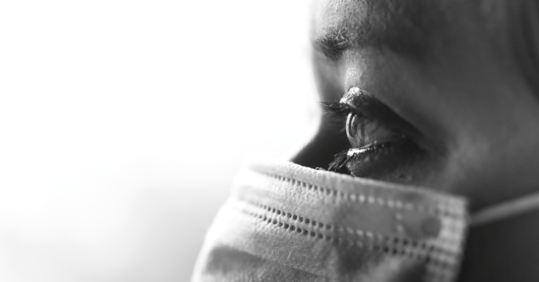‘Levels of nurse burnout to rise’

Nurse burnout will become a rising problem as we emerge from the initial impact of the pandemic, practitioners and healthcare leaders have told Nursing in Practice.
Relentless hours, cancelled holidays, and daily emotional stresses will continue to take their toll on the profession. Added to this they will now be dealing with a backlog of patients, cases of long Covid and the speedy Covid-19 vaccination rollouts, healthcare leaders have warned.
Burnout within the profession is already a significant problem. The latest NHS Staff Survey showed that 44% of NHS staff reported feeling unwell as a result of work related stress in the last 12 months. A Nursing in Practice survey earlier this year revealed 35% of GPNs in the UK were looking to quit after the pandemic, because of workload and feeling undervalued.
Related Article: New digital support for community nurses in 10-year plan
But nurses and healthcare leaders warned that burnout is becoming even more of a problem because of new pressures on top of months of relentless strain, including being unable to find qualified vaccinators for vaccination hubs.
‘The workforce is already under pressure, we’re working at unprecedented levels, and delivering the vaccination programme is adding stress on top of that work,’ said Ellen Nicholson chair of the general practice nurse forum, RCN.
‘Burnout hasn’t gone away – it’s never stopped’, said Marilyn Eveleigh, nurse advisor to Nursing in Practice and a Covid vaccinator in a GP network based in Sussex. ‘We’re feeling the pressure in vaccination hubs because we can’t get qualified nursing vaccinators.’
Helen Lewis, an ANP in a practice based in Wales, said nurses were not prepared for dealing with long Covid. ‘There will be extra pressure on nurses’ workload, and that could be where burnout comes in,’ she said.
Suzie Bailey, director of leadership and organisational development, The King’s Fund health charity, said that the size of the NHS backlog placed ‘additional pressure on a workforce already understaffed pre-pandemic’.
QNI chief executive Dr Crystal Oldman, said that ‘for well over a year there had been no respite either at work or home’, while NHS Providers chief executive Chris Hopson said trust leaders were ‘concerned about the current levels of burnout across the service, and keenly aware that we may only be seeing the beginnings of the pandemic’s effects on staff’.
Related Article: Nurse had to ‘freeze’ PPE during pandemic to re-use in care home, Covid inquiry hears
BACP member Jessica Mitchell, a counsellor at the Goldfinch practice, London, said she had counselled nurses who were ‘exhausted, anxious, and crying because of what they’ve been through’.
Nurses said even more will leave the profession unless they receive the necessary support. ‘Many may say “I’ve done my bit – I want someone to look after me now”,’ said Ms Eveleigh.
Heather Randle, RCN professional lead for primary care, said nurses must be given ‘the time and support to recover’ to prevent further burn-out including being allowed regular breaks and taking annual leave cancelled to meet demand.
‘As well as making proper mental and psychological support services available to all nursing staff’, she said the pandemic ‘must also mark a watershed moment when ministers begin to respect all nursing staff and give them the pay rise they deserve’.
Related Article: Tell us what practice nursing means to you and potentially win £1,000
Suzanne Tyler, executive director for services to members at the RCM, said that with many leaving the profession, which was worsening shortages and leading to even more pressure on those remaining, ‘we have to break this burnout cycle by investing in maternity services and giving staff the support they need’.
Neil Greenberg, professor of defence mental health, King’s College London, added it was vital that staff who become psychologically unwell ‘are able to access occupationally focused mental healthcare in a timely fashion’.

See how our symptom tool can help you make better sense of patient presentations
Click here to search a symptom




